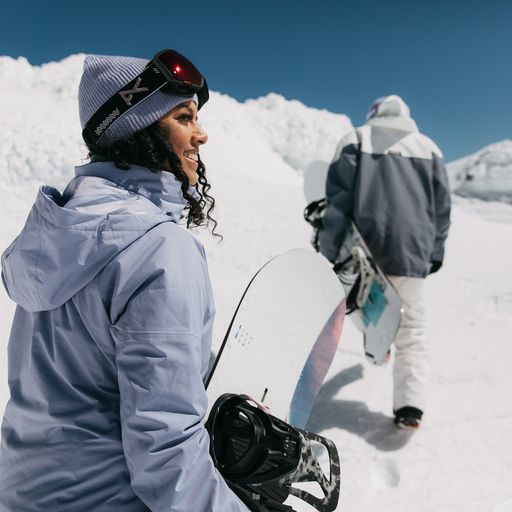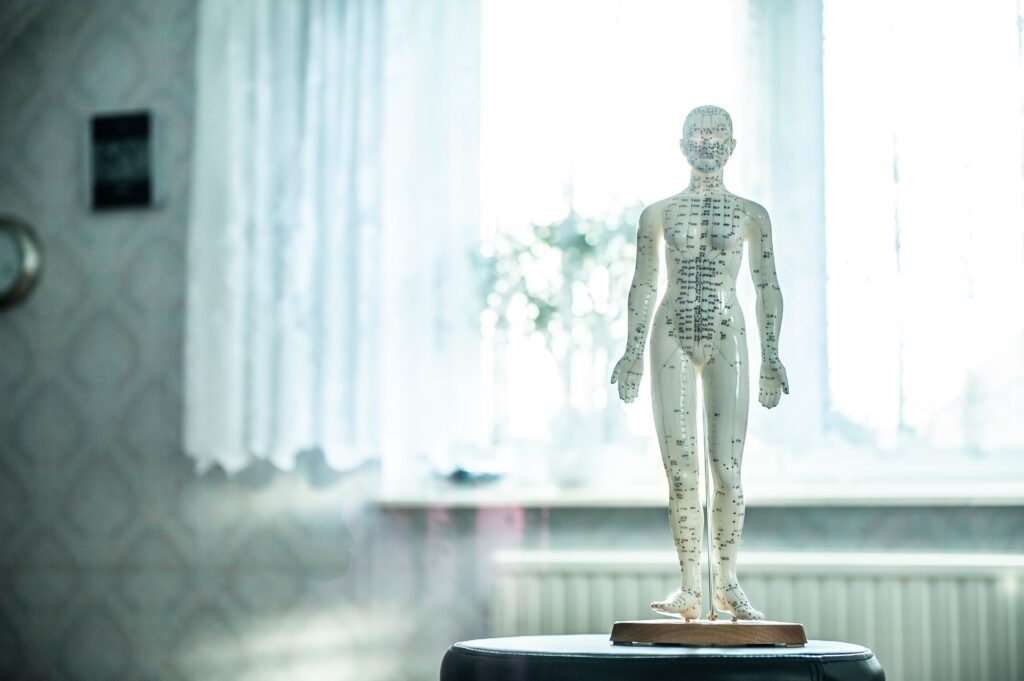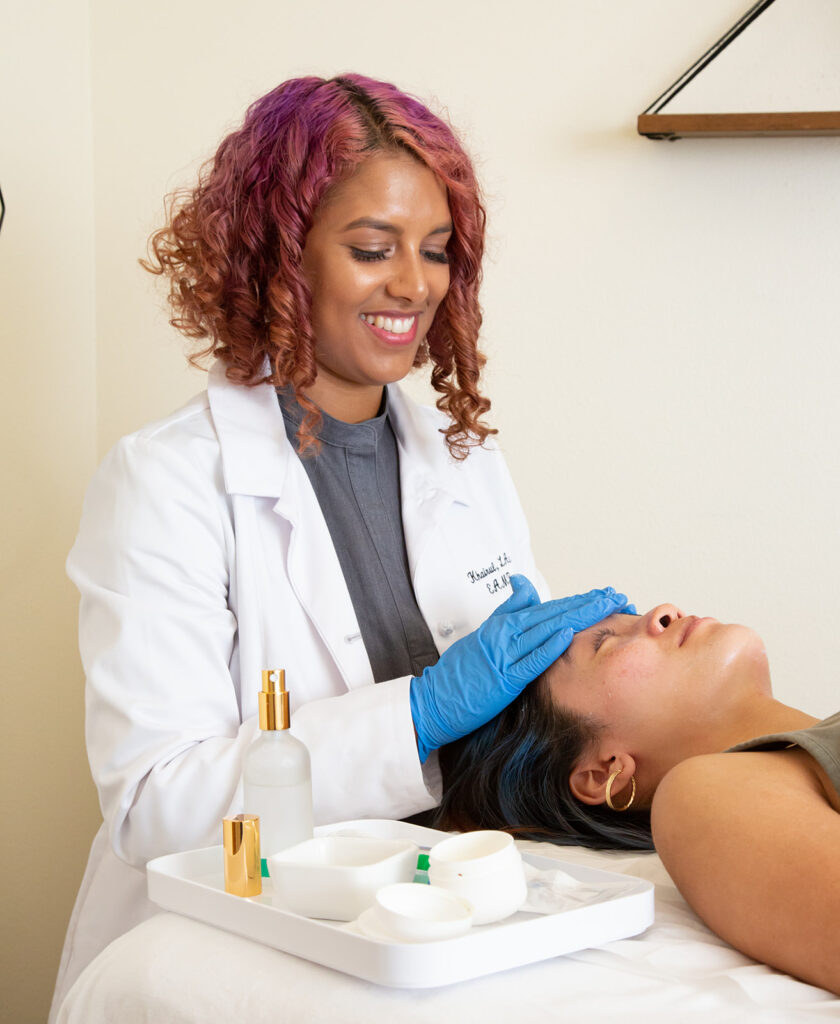
I started snowboarding in my teens and quickly became obsessed. As soon as I got my learners permit I would drive myself two hours to the mountain every weekend. Now that I am older and have begun my career as an Acupuncturist, I have realized the way this sport has shaped my physical structure and mental health. I think my progression from snowboarding to holistic medicine has been completely natural.
Snowboarding has not only brought me closer to nature but also to my body and mind connection. Being able to be completely present in the moment brings immense self awareness. I’ve heard the recurring statement from so many snowboarders, that this sport has saved their life, it’s a type of meditation and does wonders for one’s mental health.
Whether you are new to snowboarding/skiing or a long time rider, I’m sure you’ve experienced the feeling of self awareness inside your body. With any physical activity, you pretty quickly start to feel where there is tension, weakness, pain, or where some old injury starts to reveal itself again. It’s important to listen to these indications and treat yourself like an athlete, even if you don’t perceive yourself as one.
There are a lot of things you can do to prevent and treat sports injuries as well as optimize your performance. Many of these modalities are not mainstream and it takes some digging to really understand your options. Some of them I had no idea existed until I started my grad program. This is meant to be a guide for anyone who participates in physical activity at any skill level. As I learn more about physical medicine, I discover more amazing modalities. Please feel free to share in the comments what treatments have worked for you and add to this incomplete list.
Also, note that not all of these treatments will be right for everyone, experimenting and finding an individualized health plan will be the most effective approach. Finding practitioners who truly listen to you, your goals and take into account ALL of you is going to be really beneficial. Advocating for yourself is also important, as many allopathic doctors just don’t know a lot about holistic medicine. None of these are meant to be in place of emergency care, but they can definitely help in pre and post operative care.
- Acupuncture: So much more than just sticking little needles in. This includes East Asian manual therapies, moxa, electrical stimulation, herbs, breath work, lifestyle changes and more.
- Body work: There are so many different types. Myofascial, massage, cupping, gua sha or graston techniques, structural integration, somatic re-education, spinal manipulation, the list really does go on and on. These techniques are not just for physical ailments, many psycho-emotional and central nervous system issues respond greatly to body work.
- Biofeedback and Neurofeedback: Biofeedback is a mind-body therapy that can treat both physical and mental health. Neurofeedback is a type of biofeedback that teaches self control of brain functions. It’s great for healing and optimizing the brain.
- Cold Laser: Can treat pain, inflammation, and help to regenerate different types of tissue. There are multiple kinds of lasers, some are better than others.
- Cross Training: Especially if you participate in sports that are specific to certain muscle groups. Snowboarding for example is very one sided, it is important to keep your body balanced and strong. Strong muscles support joints, tendons and ligaments. Create a comprehensive training program that includes flexibility, cardiorespiratory, and resistance training.
- Electrical Stimulation: TENS, microcurrent, ultrasound and many others. Depending on the frequency and type of stimulation, this therapy can stimulate muscles that are atrophied and enhance healing by working on a cellular level. This can also be great for assisting in healing bone fractures.
- Hydrotherapy and Cryotherapy: Really effective for both musculoskeletal injuries and brain injuries.
- Hyperbaric Oxygen Therapy (HBOT): Treats a wide range of conditions, including concussion and performance optimization.
- Injection Therapy: Another modality with many subsets within it. Trigger points, acupuncture points, PRP, prolotherapy, neural therapy, stem cells, ozone, vitamin injections. There are a lot more options than the typical corticosteroid injections that most western doctors are quick to prescribe. Make sure to weigh your risks and benefits before getting a steroid injection. If you’re not in unbearable pain, look into some natural injection options first. Steroid injections should be more of a last resort type of treatment in most cases.
- IV Therapy: These treatments can be so helpful for both treatment, prevention and optimization as well as so many other conditions besides just sports medicine. If you are planning to compete in competitive sports, make sure to know the rules and regulations within your sport.
- Meditation and Breathwork: A tried and true method of regulating the nervous system, it does wonders for both physical and mental health as well as optimization of the body.
- Nutritional, Herbal and High Quality Supplementation Therapy: Yes your food matters, it is medicine. There are hundreds of herbs known for medicinal properties all over the world. Some you can cook with and some are great as topicals. If your body is trying to regenerate then it absolutely needs the building blocks to do that, including proper hydration. You get out what you put in.
- Naturopathy and Functional Medicine: Addressing the body as a whole. Allopathic medicine has a tendency to compartmentalize the body into a mechanical view. While specialists can be knowledgeable, it is important to approach the body as more of a garden than a machine.
- Physical Therapy: I’m sure most people have done this if they are recovering from an injury, it is so important for rehabilitation. Remember to listen to your body and not overwork or push yourself too hard.
- Rest: Rest days for your body are just as important as active days. Rest for your brain is extremely important after head injuries. Limit screen time, take “brain breaks” from school, work or any strenuous thinking, follow your doctor’s recommendations and be patient with yourself.
- Sauna and Infrared Therapy: Here is another option for treating both the body and the brain.
- Yoga and Stretching: Proper warm up and cool down is going to be your first line of defense in preventative medicine. Again, this is also about your mind and body connection, because they are one. Generally, dynamic stretching for warm-up and static for cool down. Connect your movement with your breath.
In the case of concussion, even if you are wearing a helmet and no matter how severe, it is really important to have a trained medical professional analyze your condition. Especially if you have had multiple head injuries, make sure to get baseline testing and evaluation for bleeding. Post-concussion syndrome can last months to years, early and consistent treatment can really help your healing process.
Holistic medicine treats the body, mind and spirit as a whole. It takes into consideration not only the individual person but also the surrounding environment. Combining multiple modalities that complement each other, for a complete and longer term solution to health. Addressing root causes rather than symptoms. Many of these modalities have been practiced for thousands of years. As western science develops ways to measure the effectiveness, these more traditional healing practices are becoming more accepted in the western world. Alongside modern practices, these traditional methods work wonderfully within an integrative and functional medicine model.



